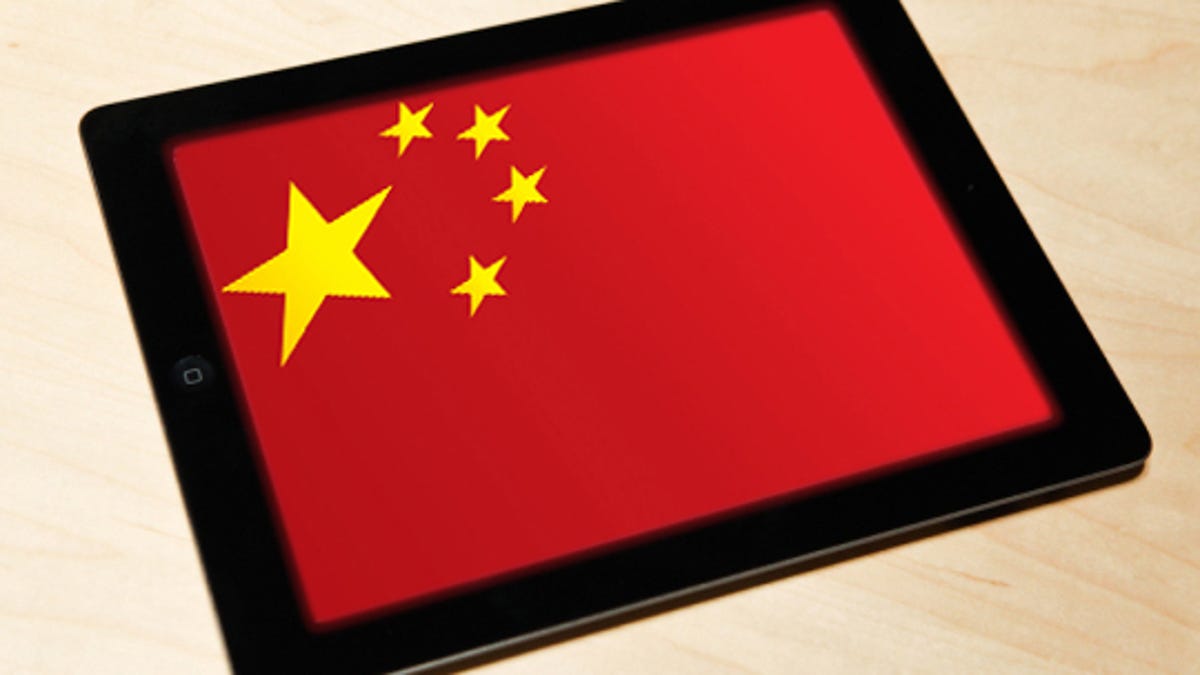Might Apple lose the iPad trademark? Welcome to the Twilight Zone
It seems improbable, but a struggling Chinese monitor maker is working the system to regain one of the world's best-known trademarks.

Apple's got a doozy of a feud going on with a Chinese company and the outcome may decide who owns the rights to the
That's not a typo. Pretty crazy but this is a crazy world and if the cards fall the wrong way, Apple conceivably could lose one of the world's most valuable trademarks in China. But first a brief recap.
Apple acquired the worldwide rights to the iPad trademark from Proview Technology in 2006. Four years later, Apple introduced the iPad and the product became a huge hit. Just in time for Proview, which by now was struggling financially, to take notice. The monitor maker claimed that Apple had bought the rights from an affiliate that didn't own them in the first place.
Since then, the dispute has been simmering. A court in southern China late last year concluded that Proview owned the iPad trademark. Earlier this month, local officials in China began removing iPads from third-party resellers in Shijiazhuang, China. Proview now wants Chinese customs authorities to shut down Apple's iPad shipments in and out of the country.
Quite a demonstration by a company with some issues of its own. In August 2010, for example, its former CEO resigned "due to his inability to further perform his duty as a director of the Company as a result of his bankruptcy," according to the company. Later that year, it violated Hong Kong Stock Exchange rules for being late in filing its financial results. And last year, it was forced to sell off inventories from a couple of wholly owned subsidiaries to settle creditor claims.
At least Proview Chairman Yang Rongshan wasn't bashful about his ambition when he told the Financial Times that his company was "in big financial trouble" and that acquisition of the iPad trademark "could help us sort out part of that trouble."
I bet.
The last time it reported its finances, Proview loggeda $97 million loss for the six months ended December 2009.
"It is arrogant of Apple to just ignore our rights and go ahead selling the iPad in this market, and we will oppose that," Yang said.
Kettle, black? But I digress.
There's a much bigger context here. You might justifiably accuse Apple of having a blind spot about certain things, but buying the iPad trademark in China from an affiliate that didn't own it? And not performing due diligence for a product line that was so key to the company's future? That's more than a stretch. That's crazy talk.
I suppose you can't blame Proview for working a system that, at best, remains indifferent to protecting intellectual property. But it's not a done deal yet. Read the link below to a ruling in favor of Apple issued last summer by a Hong Kong court, which essentially said Proview was in breach of contract.
"The conduct of all the defendants demonstrate that they have combined together with the common intention of injuring Apple and IP Application [Apple's agent in the purchase] by acting in breach of the agreement. Proview Holdings, Proview Electronics and Proview Shenzhen, all clearly under [Proview CEO Yang Rongshan's] control, have refused to take any steps to ensure compliance with the agreement so that the China Trademarks are properly assigned or transferred to [Apple]. Instead, they attempt to exploit the situation as a business opportunity for the Proview Group by seeking an amount of US $10 million from Apple."
And then yesterday 15 pages of correspondence between Apple and Proview got leaked to AllThingsD, casting more doubt on the Chinese company's claims.
U.S-China: Growing distrust
The iPad dispute takes place against a backdrop of growing friction between China and the U.S over trade practices. The U.S. has complained repeatedly about China's failure to protect intellectual property rights in the Chinese market.
For companies like Apple, and other businesses based in the U.S., the threat of copyright infringement and other intellectual property violation adds risk to forging trade beyond U.S. borders, as well as launching new business ventures. All this at a time when the country is on the mend from a recession.
The White House did not respond to requests for comment. Neither did Apple.
Given the sensitivity of the question, their silence is understandable--especially with China's vice-president and heir apparent visiting the U.S. But if this isn't the right time to turn this into a campaign issue, rest assured that that debate is coming.
In an op-ed piece in Thursday's Wall Street Journal, Mitt Romney singled out China policy on intellectual property as "abusive." Administration officials have said as much, though without the white-hot rhetoric.
Billions of dollars are at stake in the iPad trademark case. If Proview is going to win, it will need to work whatever connections it has with friendly Communist Party members because the judge's decision was blunt about assessing blame. Should that come to pass, the candidates for U.S. president won't be able to brush this one under the carpet. Nor should voters allow them to.

